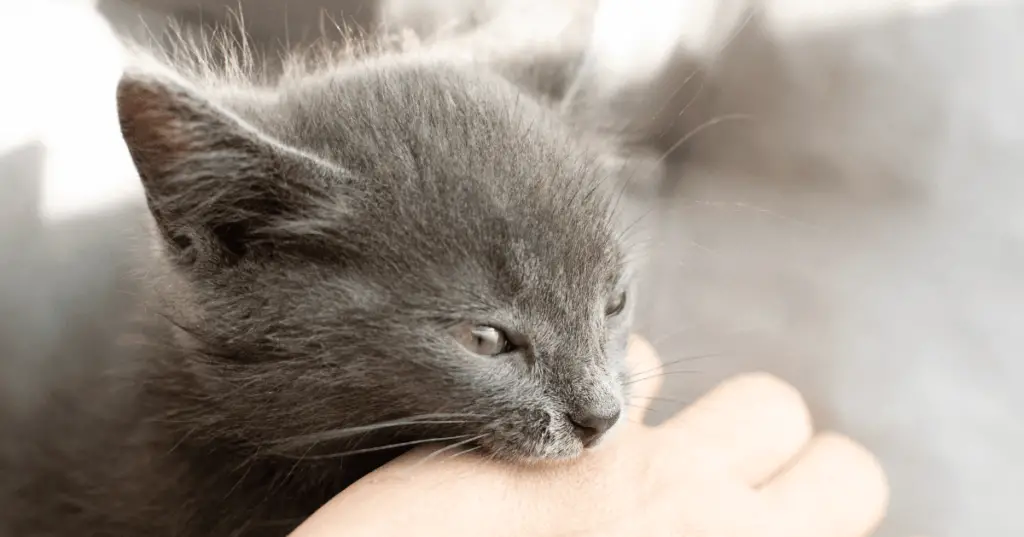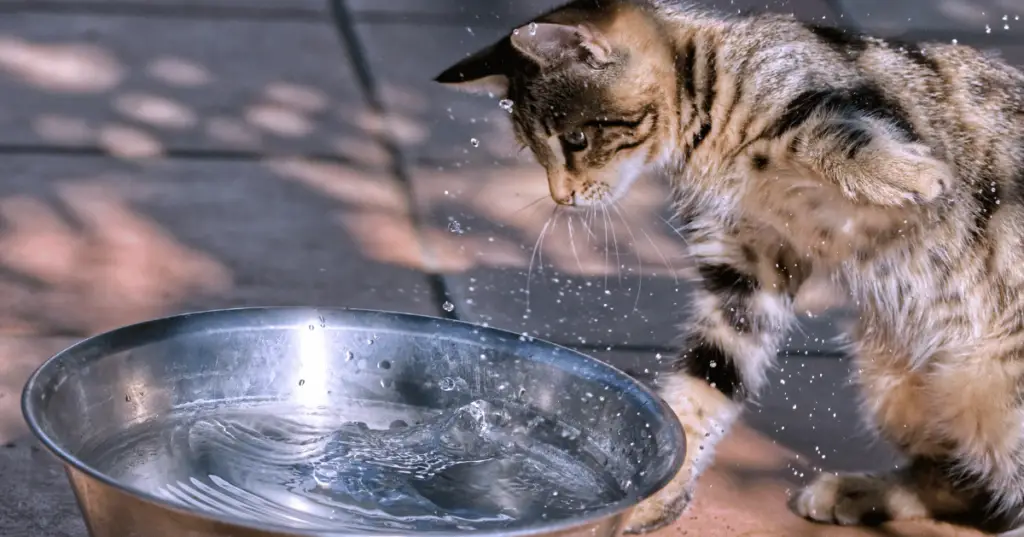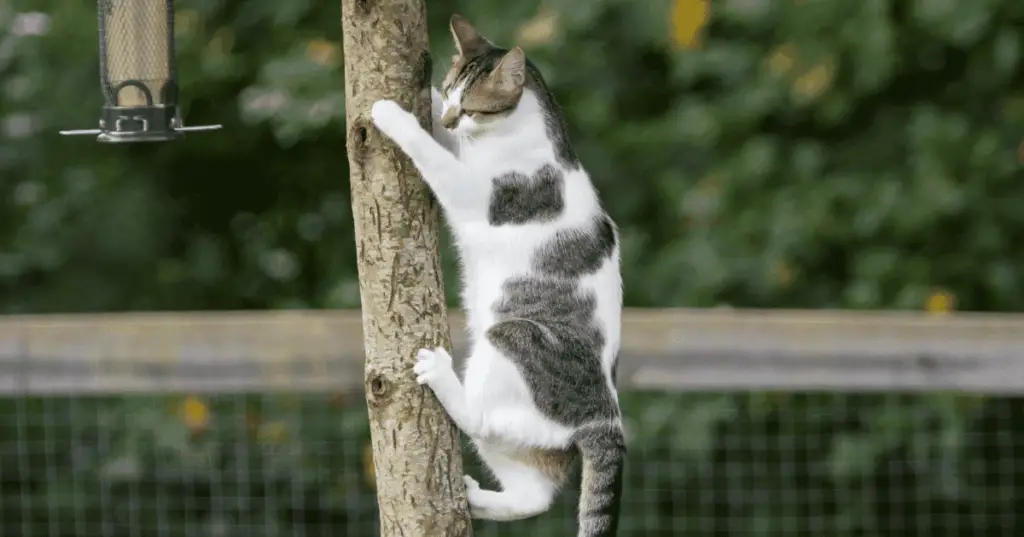Cats are cute, but sometimes they bite, and it hurts. We will learn how to train your cat to stop biting you. Cats do this for various reasons, like play or feeling scared. We need to understand why they do it.
We will also talk about their body language, so you know when they might bite. And we will figure out what triggers them to bite. This is not about changing your cat. It’s about teaching them not to bite. We want you both to be happy and safe.
So, if you want to know how to stop your cat from biting, keep reading. We will show you how to have a better relationship with your furry friend without those painful bites.
Reasons Behind Cat Biting
Cats can bite for several reasons, which is key to addressing their behavior. Here are some common reasons why cats might bite.
When Cats Are Playing
Cats like to play, like kids play with toys or friends. Cats may jump, chase, and sometimes even gently bite when playing. Cats often use their mouths when they play, similar to how kittens play-bite with their siblings. Your cat might see you as a playmate and not mean to hurt you, but their sharp teeth can still be uncomfortable. Give them toys like feather wands or laser pointers to stop playful biting.
When Cats Feel Stress or Fear
Cats can be easily scared or stressed in some situations. When they feel this way, they might bite to protect themselves. It’s like when a scared dog growls or snaps.
Things that make cats feel scared or stressed include new places, strange people or animals, loud noises, or sudden movements. If you can spot these signs and understand your cat’s body language, you can avoid situations where they might bite.
When Cats Are in Pain
when you have a headache or a sore muscle. It makes you grumpy, and you don’t want people touching you because it hurts. Cats feel the same way. They can’t tell us in words when they hurt, so they use their body, like biting.
If your cat is hurt or not feeling well because of an injury, sickness, or tooth problems, they might bite to say, “I’m in pain. Help me.”If your cat suddenly starts biting and you think it’s because they’re in pain or uncomfortable, it’s really important to talk to a vet.
When Cats Are Overstimulated
Cats have certain parts of their bodies that are more sensitive than others. Each cat can have different areas, like their tail, belly, and back legs. When these sensitive spots are touched too much or roughly, it’s like when someone tickles you a lot—it can quickly change from fun to not-so-fun.
When a cat gets too sensitive or overstimulated, they might start to bite. It’s their way of saying, “I’ve had enough, I need a break.”
To avoid your cat getting to this point, pay attention to how they feel. If you see signs like their skin twitching or their tail moving strangely, it’s time to stop petting them.
Types of Cat Bite
Distinguishing between a playful cat bite and an aggressive cat bite is important for understanding your cat’s behavior
Playful Cat Bites
- These bites are gentle and not meant to hurt.
- Happens during happy playtime.
- The cat looks relaxed and may purr.
- They adjust their bite to avoid hurting.
Aggressive Cat Bites
- These bites are strong and meant to hurt.
- Happens when a cat feels scared or angry.
- The cat looks tense, with flat ears and big eyes.
- They don’t hold back; they bite hard.
How to Train Your Cat to Stop Biting?
Stopping a cat from biting involves understanding the underlying reasons for their behavior and applying appropriate training.
To help your cat stop biting, it’s important to figure out why they’re doing it. Cats bite for different reasons. Some may bite during play because they think your hands or feet are toys. Others might bite when they’re scared, hurt, or overwhelmed.
Once you know why your cat is biting, you can train them. If it’s playful biting, use toys to play with them instead of your hands or feet. When they play without biting, give them treats and praise to show you’re happy with their behavior. Never punish your cat by shouting or hitting; it won’t help.
Keep your cat entertained and busy them with toys and scratching posts to scratch. This prevents boredom, which can lead to biting. Make sure your cat has a quiet place to go when they want a break. And remember, respect their boundaries. If they don’t like being touched in a certain way, listen to them.
If your cat keeps biting, especially if it’s bad or doesn’t stop, consider talking to a vet. They can check if there’s a medical reason for the biting. If it’s a behavior issue that’s tough to fix, you should consult an animal behavior expert.
What to Do After a Cat Bite?
If a cat has bitten you, it’s essential to take prompt and appropriate steps to minimize the risk of infection
1. Wash the Wound: Use soap and warm water to clean the bite for about five minutes.
2. Stop Bleeding: If bleeding, put a clean cloth on it and press gently until it stops.
3. Use Antiseptic: Put some germ-killing liquid on the bite to prevent infection.
4. Cover the Wound: Use a clean bandage to keep the bite clean and dry.
5. See a Doctor: Go to the doctor or a hospital, especially if the bite is deep, looks bad, or gets red, swollen, or painful.
Conclusion
Cats are cute but may bite for playfulness, fear, pain, or overstimulation. To address this, we must understand why they do it. Recognizing their body language and triggers can help prevent biting without changing the cat’s nature.
To stop biting, identify the cause. If it’s playfulness, use toys instead of hands. Positive reinforcement, like treats for good behavior, is helpful. Provide a stimulating environment with toys and scratching posts to keep them busy and prevent boredom. Respect their boundaries in petting and learn when to stop. Consult a vet if biting continues.



